It’s taken me a while to write up my thoughts on the most recent Doctor Who Christmas special, “The Time of the Doctor.” I was deeply disappointed by it but was having trouble sorting through all the reasons why. I suppose the answer is that this episode exemplifies everything I feel is wrong with the show under Steven Moffat. After the promise of the anniversary special, “The Day of the Doctor,” and its equally superb prequel minisode, “The Night of the Doctor,” I was expecting better. What I got instead was more of the usual, an overly convoluted, overwrought episode that makes little internal sense and actively contradicts the program’s — nay, this very season’s — own continuity.
Be warned, there will be spoilers from here on out!
Part of the problem has always been that Steven Moffat loves the Doctor too much to let anything bad ever really happen to him. The TARDIS blew up and the universe is ending? Oh, the Doctor can just reboot the universe and everything will be fine again. The Doctor has to die at a specific time and place or time itself will go all crazy? Oh, the Doctor can just fake his death with a robot and everything will be fine again. Corrupt salvagers have infiltrated the TARDIS and damaged it to the point where it’s going to explode? Oh, the Doctor can just reset the time stream so none of that happened. The stakes in the Moffat era have quickly been revealed to be nil. And so this refusal to allow anything bad to happen to the Doctor results in perhaps the most anticlimactic regeneration since the Sixth Doctor essentially fell off an exercise bike and hit his head. Here, on Trenzalore, a planet we’ve been warned about since the end of the sixth season, a planet where we have seen for ourselves the Doctor’s tomb among thousands of gravestones marking the aftermath of an epic battle, the Eleventh Doctor dies — of old age. He does this while protecting a tiny town of Earth colonists inexplicably called Christmas. (One can imagine they named the town Christmas to comfort themselves for being so far from home, but that’s not in the script. Instead, no reason is given for it, other than so that the Doctor can be referred to, with Moffat’s usual fairy tale flair, as “the man who stayed for Christmas.” Which, now that I think about it, would have made a much better title for the episode than “The Time of the Doctor.”)
Another problem with the episode is another problem with the Moffat era in general: He keeps inadvertently alienating the audience from the Doctor by giving him adventures we don’t get to see and friends we don’t get to meet along with him. Think about when Vastra, Jenny, and Strax first appeared in “A Good Man Goes to War.” We had never met them before, so we felt no connection to them. That changed over time as the characters came back and we got to know them better, but the same did not happen with, for example, Nefertiti and Riddell from “Dinosaurs on a Spaceship.” Were we supposed to care about them? Who knows, they never show up again. In “The Time of the Doctor,” the role of the Doctor’s old friend that we’ve never heard of before is given to Tasha Lem. She seems interesting, I guess, but it’s a safe bet she’ll never show up again, so why bother getting attached? Besides, she just dies anyway. Then she doesn’t. It’s all very confusing. But one thing is certain: she’s hot for the Doctor.
You see, Moffat literally cannot imagine female characters who don’t have a romantic history with the Doctor or who don’t fancy him. Amy Pond tries to seduce the Doctor the night before her wedding. Why? Does she have cold feet? Is she not sure she’s in love with Rory? Nope, it’s not part of a character arc, nothing like that. It’s just because she’s a woman and he’s the Doctor. Even Clara, who up until this point has never shown any interest in the Doctor beyond friendship and accepting his invitation to explore the universe, admits under the control of a “truth field” that she went with him because she fancies him. What? Where did that come from? (Russell T. Davies had the same problem with the Doctor and women, but at least with Donna he rectified that.) Tasha Lem, of course, appears to have a romantic history with the Doctor — again, one we don’t get to see or feel anything about, especially with regard to, say, his relationship with River Song — and flirts heavily with him. They cannot simply be allies, because she is a woman, and this is the role of women in Moffat’s scripts. I suppose I shouldn’t be surprised considering the way he presented Irene Adler on Sherlock. And don’t get me started on the weird “joke” about having to be naked to go to church. I haven’t seen a writer jump through so many hoops to sexually humiliate the Doctor and, more so, his female companion since, well, pretty much every New Adventures novel in the 1990s. (Over on Tumblr, Whovian Feminism has a great breakdown of this and other troubling gender issues in “The Time of the Doctor” and throughout the Moffat era, including the Doctor’s new and disturbing habit of forcing kisses on women and then laughing off their protestations. On Earth, that’s called sexual assault.)
This blog post is already getting quite long and I feel like I’ve only just scratched the surface of the problems. Clara’s family was a one-note joke and I wouldn’t have even known their names if not for the credits. Gone, it seems, are the days of the richly drawn families of Rose, Martha, and Donna. While the episode did an admirable job of retconning all that Silence bullshit from season 6, it did so in a manner that complete robbed the freaky alien Silents of any sense of threat or dread. Now they’re just genetically engineered confessional priests. A fact the Doctor somehow knows now but didn’t then. Um, okay. One gets the feeling Moffat painted himself into a corner with all this Trenzalore and Silence and the Oldest Question stuff and just threw this together as best he could. Despite the fact that it flies in the face of everything this past season was about. I mean, if the Doctor doesn’t die on Trenzalore and there’s no tomb, then Clara doesn’t go back in time via the tomb to save the Doctor from whatever the hell the Great Intelligence was doing all throughout his time stream (I’m still waiting for an answer on what that was). She doesn’t splinter throughout time. She’s not on the Dalek’s asylum planet (don’t get me started on those stupid Dalek eye stalks on humans making a comeback in this episode!) and she’s not in Victorian England with the snowmen, all of which means the Doctor wouldn’t go looking for her. So she wouldn’t be his companion now. She shouldn’t even be there anymore. Essentially, most of season 7 didn’t happen, I guess? I’m okay with that. I’d also be okay with most of seasons 5 and 6 not happening, but that’s neither here nor there.
More problems: What was the point of the Doctor going around removing himself from databanks all over the universe? It came to nothing. The Doctor ages 300 years or more during the siege of Trenzalore, but no one else on the planet seems to. Tasha Lem certainly doesn’t. Is that because she’s dead but not dead? I don’t even know. Also, in three centuries the people of Christmas never bother developing weapons or shields to protect themselves? Are there more people on Trenzalore than this tiny little village of, like, sixty residents? There sure seemed to be more gravestones when we saw Trenzalore’s future! Why have every alien race in the Whoniverse gather there instead of just the Daleks, who are the only ones who would actually care if the Time Lords came back? Didn’t we already have every alien race in the Whoniverse get together in “The Pandorica Opens” at the end of season 5? Since when did regeneration energy come with the ability to blow up Daleks (but not anything or anyone else on Trenzalore)? Are you seriously telling me it was the crack in time that the Doctor saw in Room 11 in “The God Complex” as his deepest fear? Don’t you think it would have made more sense that he see the War Doctor in there, with his deepest fear being that he would become like that again? And this last point is less a problem than an opinion, but it really should have been River Song coming down those steps at the end, not Amy Pond.
Lest you think I’m all about Moffat bashing, there are things I like about his writing, too. He’s good with humor (which works well for Eleven because Matt Smith is a much better comedic actor than dramatic one). Moffat’s lifelong love of Doctor Who comes through clearly with funny and often unexpected continuity references. A shout out to the Third Doctor taking the Seal of the High Council off the Master in the Death Zone in 1983’s 20th anniversary special “The Five Doctors”? That had me laughing with joy. I was also gratified that he honored the twelve regeneration limit of the Time Lords and counted David Tennant’s second regeneration in “Journey’s End” as one of them. I knew they would have to get around this issue at some point, and Moffat’s decision to have a whole new regeneration cycle come from the Time Lords themselves was both touching and legitimately canon, since the Time Lords have done it before, even offering new regenerations to the Master in “The Five Doctors.” (Although I thought the free-floating regenerative energy coming down from the crack and into the Doctor’s mouth looked pretty silly on screen.) The regeneration scene itself was well done. (Although the “new kidneys” line got more of a heavy sigh from me than a laugh.) The Eleventh Doctor gave a good speech, although I probably would have found it a lot more moving if I’d ever been a fan of the Eleventh Doctor. But I never warmed to him, mainly because I thought the writing during his time was lackluster at best. (Ted B. Kissell’s article in the Atlantic shares this opinion and raises many of the same issues I do.)
I really hope with the next Doctor the show loses all the faux fairy tale nonsense and get back to telling interesting sf/f/h stories. I’ve heard that they’re planning to return to gothic horror stories akin the Philip Hinchcliffe years, and that excites me. That was my favorite era of Doctor Who. So I do have some optimism about what’s coming next, and I’m eager to see Peter Capaldi in the role. I hope he will be a Doctor less interested in what is “cool” and less inclined to slap Clara on the ass or force a kiss upon a married lesbian. But I’m keeping that hope tempered. After all, I remember who’s still at the wheel.
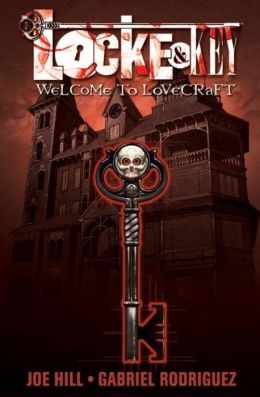
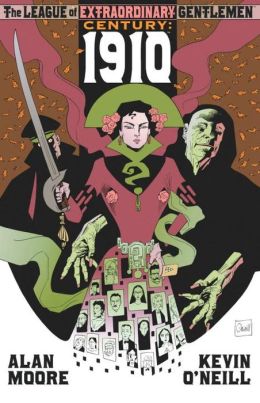
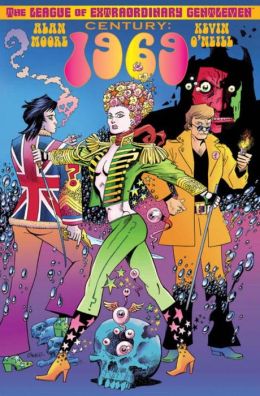
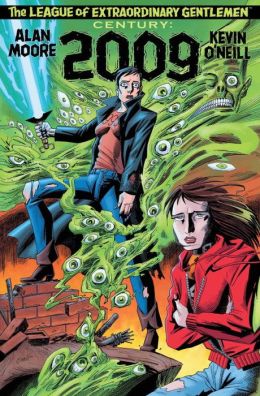
 An instant classic, featuring the first and only appearance of the Zygons until the 50th anniversary special, “The Day of the Doctor.” This one fascinated me so much as a kid, especially the design of the Zygons and their biomechanical spaceship.
An instant classic, featuring the first and only appearance of the Zygons until the 50th anniversary special, “The Day of the Doctor.” This one fascinated me so much as a kid, especially the design of the Zygons and their biomechanical spaceship.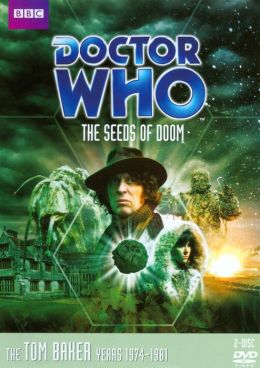
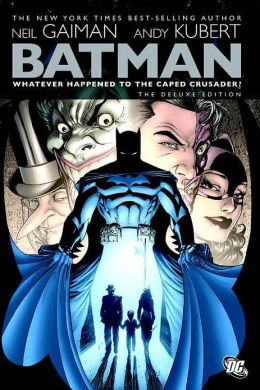 A graphic novel I’ve been meaning to read for some time now.
A graphic novel I’ve been meaning to read for some time now.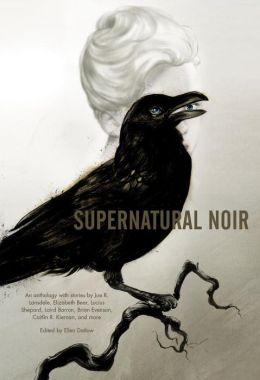 I was shocked when I discovered this wasn’t already on my shelf.
I was shocked when I discovered this wasn’t already on my shelf.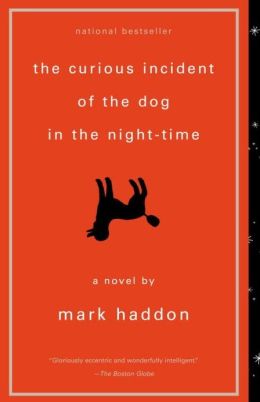 This one has been on my want-to-read list since it came out nearly ten years ago.
This one has been on my want-to-read list since it came out nearly ten years ago.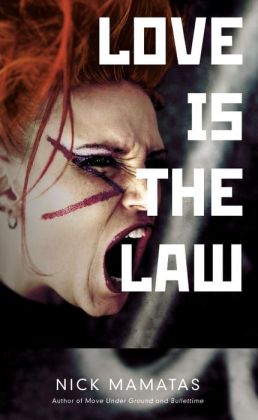 I found this novel by science fiction author Nick Mamatas in the New Science Fiction section. I assume it’s got something to do with robots and spaceships, yeah?
I found this novel by science fiction author Nick Mamatas in the New Science Fiction section. I assume it’s got something to do with robots and spaceships, yeah?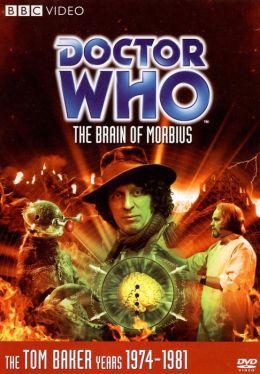 I can’t redeem a gift card without buying a Doctor Who video, now can I? The Brain of Morbius is one of the serials that absolutely hooked me on the show as a wee lad. “Frankenstein in space,” basically, plus a talking brain in a jar. What’s not to love?
I can’t redeem a gift card without buying a Doctor Who video, now can I? The Brain of Morbius is one of the serials that absolutely hooked me on the show as a wee lad. “Frankenstein in space,” basically, plus a talking brain in a jar. What’s not to love?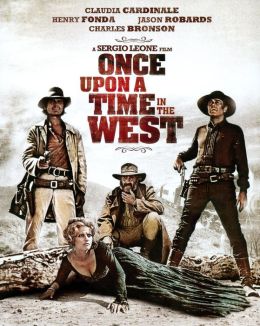 One of the best Westerns ever made. Of course, it’s been ages since I’ve seen it, so I’m bracing myself for any of that late-1960s casual racism and sexism I may not have picked up on when I last saw it in my teens.
One of the best Westerns ever made. Of course, it’s been ages since I’ve seen it, so I’m bracing myself for any of that late-1960s casual racism and sexism I may not have picked up on when I last saw it in my teens.
